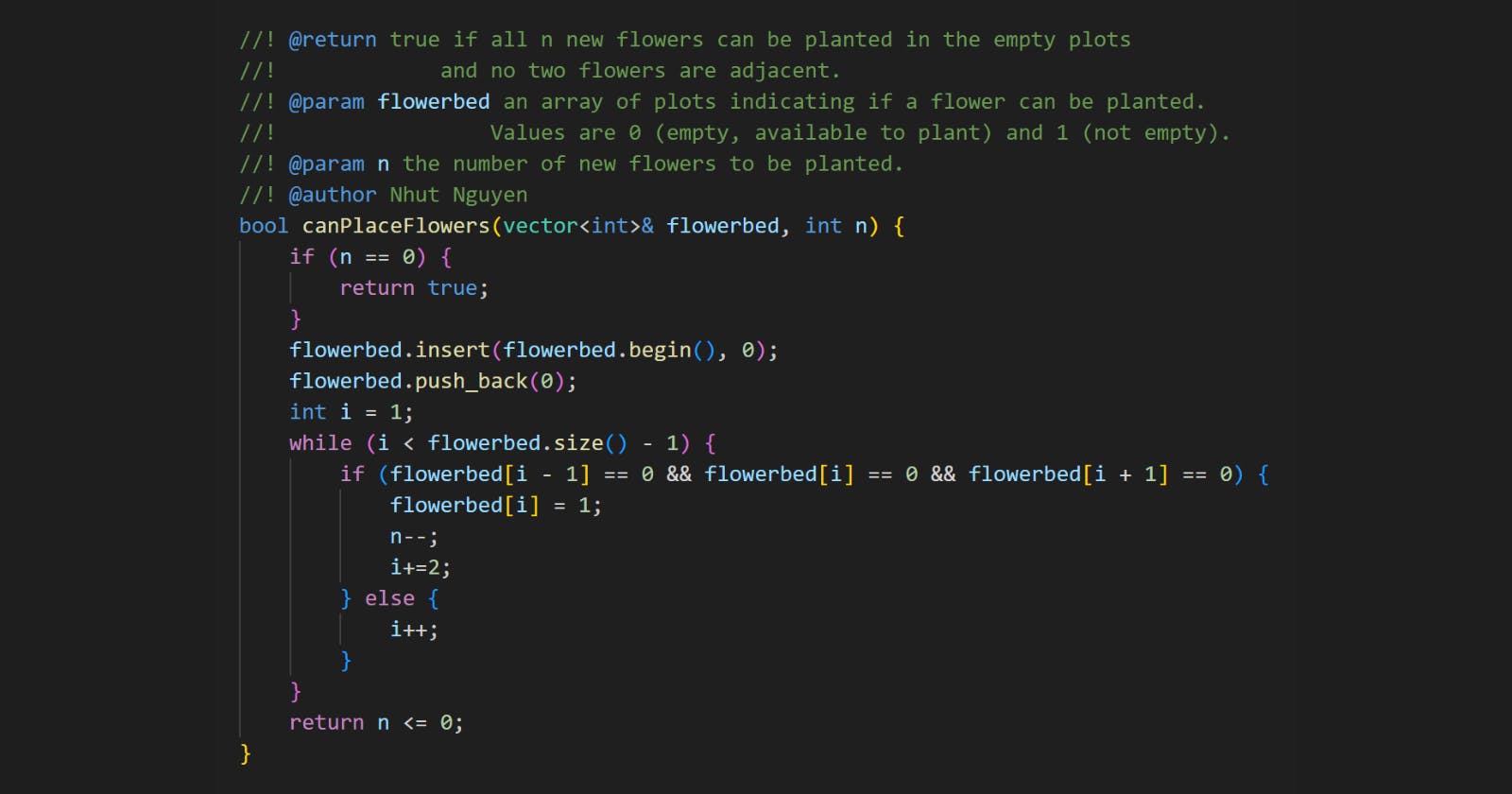Problem statement
You have a long flowerbed in which some of the plots are planted, and some are not. However, flowers cannot be planted in adjacent plots.
Given an integer array flowerbed containing 0's and 1's, where 0 means empty and 1 means not empty, and an integer n, return true if n new flowers can be planted in the flowerbed without violating the no-adjacent-flowers rule.
Example 1
Input: flowerbed = [1,0,0,0,1], n = 1
Output: true
Example 2
Input: flowerbed = [1,0,0,0,1], n = 2
Output: false
Constraints
1 <= flowerbed.length <= 2 * 10^4.flowerbed[i]is0or1.There are no two adjacent flowers in
flowerbed.0 <= n <= flowerbed.length.
Solution: Check the no-adjacent-flowers rule
A new flower can be planted at the position i only if
flowerbed[i - 1] == 0 && flowerbed[i] == 0 && flowerbed[i + 1] == 0.
If the condition is satisfied, the flower can be planted at the position i. flowerbed[i] is now assigned to 1. Then you can skip checking the rule for the position i + 1 and go directly to the position i + 2.
Code
#include <iostream>
#include <vector>
using namespace std;
bool canPlaceFlowers(vector<int>& flowerbed, int n) {
if (n == 0) {
return true;
}
flowerbed.insert(flowerbed.begin(), 0);
flowerbed.push_back(0);
int i = 1;
while (i < flowerbed.size() - 1) {
if (flowerbed[i - 1] == 0 && flowerbed[i] == 0 && flowerbed[i + 1] == 0) {
flowerbed[i] = 1;
n--;
i+=2;
} else {
i++;
}
}
return false;
}
int main() {
vector<int> flowerbed{1,0,0,0,1};
cout << canPlaceFlowers(flowerbed, 1) << endl;
flowerbed = {1,0,0,0,1};
cout << canPlaceFlowers(flowerbed, 2) << endl;
}
Output:
1
0
Complexity
Runtime:
O(N), whereN = flowerbed.length.Extra space:
O(1).
Implementation note
In this implementation, you could insert an element
0to the front and the back of the vectorflowerbedto avoid writing extra code for checking the no-adjacent-flowers rule ati = 0andi = flowerbed.size() - 1.There are a few ways to insert an element into a vector. Here you can see an example of using the methods
insertandpush_backof astd::vector.
What is your approach? The problem was picked from leetcode.com. You can submit your solution in any programming language and check the performance.
Thanks for reading. Feel free to share your thought about my content and check out my FREE book 10 Classic Coding Challenges.

